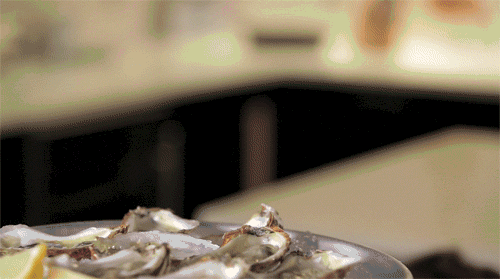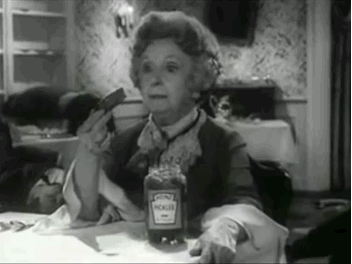William Shakespeare wasn’t just a good playwright. This poet had more impact on our lives than we might realise, for instance did you know these everyday phrases originated from Shakespeare?
1. The World is Your Oyster

From: The Merry Wives of Windsor
Meaning: You can do anything you want in life
“Why, then the world’s mine oyster, which I with sword will open” (Act 2, Scene 2)
Pistol wants Falstaff to lend him money, however Falstaff refuses. Pistol then claims he will seek fortune elsewhere as the world is his oyster. Although he threatens to do this with a sword… that bit gets left out of the saying.
2. Green-Eyed Monster

From: Othello
Meaning: To be jealous
“Oh, beware, my lord, of jealousy!
It is the green-eyed monster which doth mock
The meat it feeds on” (Act 3, Scene 3)
Iago uses romance as an example of the powers of jealousy. He sees jealousy as a monster that can eat away at a person. Indeed it would be better to know your wife was cheating than to suspect it without having any evidence.
3. Love Is Blind

From: The Merchant of Venice
Meaning: When in love people will not see the short-comings of the person they love
In The Merchant of Venice Jessica has to disguise herself as a boy in order to see her love Lorenzo, despite feeling silly she has to see him.
4. Break the Ice

From: The Taming of the Shrew
Meaning: To start a conversation
“And if you break the ice, and do this feat,
Achieve the elder, set the younger free … ” (Act 1, Scene 2)
Baptista Minola has two daughters – the oldest is outspoken and sassy while the younger is modest and beautiful. He won’t let any suitors speak to his younger daughter until his older daughter his married so Tranio asks another man to marry the older daughter so he can meet the younger daughter.
5. Wear Your Heart On Your Sleeve

From: Othello
Meaning: Letting others see your emotions clearly
“wear my heart upon my sleeve. For daws to peck at: I am not what I am” (Act 1, Scene 1)
Iago says he is going to wear his heart on his sleeve however this is a weakness as others will be able to use it against him.
6. In a Pickle

From: The Tempest
Meaning: Being in a bad or difficult position
King Alonso: “How camest thou in this pickle?”
Trinculo: “I have been in such a pickle since I saw you last … ” (Act 5, Scene 1)
Although the two were talking about drinking, the phrase has been altered over the years to mean an unfortunate situation.
7. Catch a Cold

From: Cymbeline
Meaning: To get sick
We will have these things set down by lawful counsel, and straight away for Britain, lest the bargain should catch cold and starve … ” (Act 1, Scene 4)
In this instance the “cold” is a a bad event but nowadays catching a cold refers to getting sick.
8. It’s all Greek to Me

From: Julius Caesar
Meaning: Something is confusing or doesn’t make sense to you
“But, for mine own part, it was Greek to me” (Act 1, Scene 2)
For Casca this phrase was a little more literal. He really didn’t understand Greek.
9. Heart of Gold

From: Henry V
Meaning: A very kind person
“The king’s a bawcock, and a heart of gold, a lad of life, an imp of fame … ” (Act 4, Scene 1)
The king, under disguise, asks Pistol what he thinks of the king. Telling his he has a heart of gold is sure to earn brownie points.
10. Laughing Stock

From: The Merry Wives Of Windsor
Meaning: Making fun of or laughing at a person
“Pray you let us not be laughing-stocks to other men’s humours;
I desire you in friendship, and I will one way or other make you amends” (Act 3, Scene 1)
Here Doctor Caius doesn’t want to become a fool by fighting so wants him and Sir Hugh Evans to stop and save their reputations.